When I think of the precariousness of life, I sometimes view it through one simple question that carries the emotional weight of a lifetime: How many Opening Days do I have left? The truth is I don’t know. None of us do.
With the stirrings of baseball back on the field in the midst of what we fervently pray is a diminishing pandemic, a rush of hope springs forth. We yearn for a full sense of normalcy, while small steps towards that goal encourage us.
To write about baseball, either as metaphor or actuality, is to trod a well-worn trail in pretty august company. I am humbly aware that far better writers and thinkers than I have waxed poetically and powerfully about the role of the sport as a measure of time, a symbol of life, and a lens through which to view our national consciousness. But here, in the time of Covid, baseball has taken on a special significance. So I beg your indulgence.
I have been a baseball fan for as long as I can remember the feeling of a warm spring day. The sport is tied to memories, recent and distant, of links to family long gone and to those who are very much here. I think of many bags of peanuts eaten, and hopefully more that await my return to the ballpark.
I know we can measure some of the history of our nation alongside the National Pastime. We track in baseball the growth of our cities and our population's movements west (for the first 30 years of my life, St. Louis was the farthest west AND farthest south of the cities with Major League teams). We see the growth of commercialism in sports. Many new technologies in mass media and communication were tied to getting scores and the games themselves to the masses (I have fond memories of calling games as a young broadcaster). And of course there is the most important echo of our larger society, our shameful history with race. I was still attending a segregated school in Houston when Jackie Robinson bravely broke the color barrier in Major League baseball.
I remember the chase of Hank Aaron breaking Babe Ruth’s record on April 8, 1974 —47 years ago this week. It was a big deal of course, made bigger by the overtones that could not be ignored. Here was a Black man, playing baseball in the newly integrated Deep South (Atlanta) replacing the most revered hero of what was then still firmly the national sport with the most revered record that existed. It was both a watershed, and a long time coming.
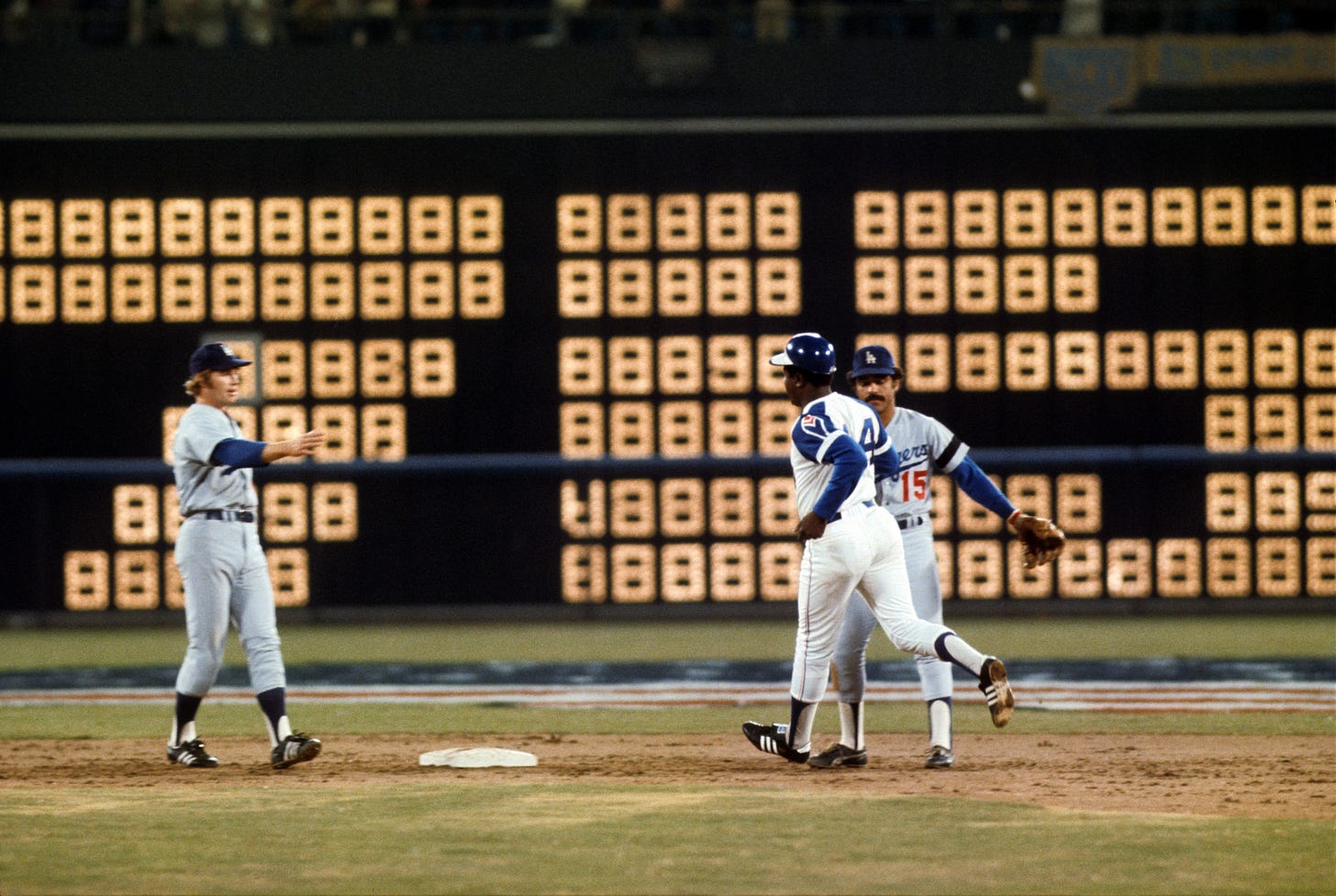
We look back at the footage of that day and does it seem to be in the distant past? Or do we see the echoes of our current moment? Making sense of time and progress became all the more fraught as Major League Baseball pulled this year’s All Star Game —with its intended tribute to the recently-deceased Aaron— from Atlanta in protest of Georgia’s new voting laws.
In my travels around the globe, I have often told people that a key to understanding our country can be found in our athletic pursuits. Football may be our martial and territorial instincts. Basketball is a game of speed and improvisation. And baseball is one of strategy, deliberation, a melding of teamwork and rugged individualism. Most of all it is the persistence that must come with a 162 game schedule.
In the stands of major league and minor league parks you will see American democracy at work, a mixing of Democrats and Republicans, young, old, different races, genders, sexual orientations and all the other divisions that too often separate us. Although I worry that ticket prices at many of the big city clubs are diminishing the mingling of economic classes. This is a danger to the continued popularity of the game, and a symptom of some of the undercurrents chipping away at our greater national cohesion.
And yet while I appreciate baseball's important chapters in the country’s larger narrative, the reasons for why it will always be my most cherished sport are deeply personal. There I am as a young child, sitting with my father at the minor league Buffs Stadium in Houston. I don't just see the bright green grass, shining diamond, and languid young men effortlessly playing catch before the game to warm up, I can still smell the scene. There was a bread factory beyond the outfield fence, and a train track running near it. And on those heavy summer afternoons the smell of the turf mixed with a yeasty aroma and the smoke of the passing locomotives —as well as whatever combination of concessions and beverages the fathers and sons sitting around us were enjoying. I have never met a rose that for me will smell so sweet.
My father loved baseball and sharing and teaching the game to me was a way for a reserved man to express his love. I took the lesson to heart and was eager to pass it along to my own children and later my grandsons. Neither of my grandsons have met my father in person, and yet when I sit with them in the stands I feel I am knitting a bond across the generations.
I’m thinking a lot about family, and connections, and gathering, and the simple joys of life that have been torn from us during this pandemic. One of the reasons I love baseball so much is that it approximates life. The season is long. Each game has its drama, even each pitch. But success is measured over time, we see winning streaks and losing streaks, the best batters fail most of the time, the best teams often still lose. It’s all a game, but the lessons of the importance of perseverance, resilience, and being steady are there for those who seek them.
These are the lessons we have been forced to learn during this pandemic, with far greater and more tragic stakes than a sports season. We have seen waves of hope and despair. We have tracked numbers seeking to see a trend towards a winning season. We yearn to return to one another, to pass a hot dog down the aisle, to cheer together at a well-earned home run.
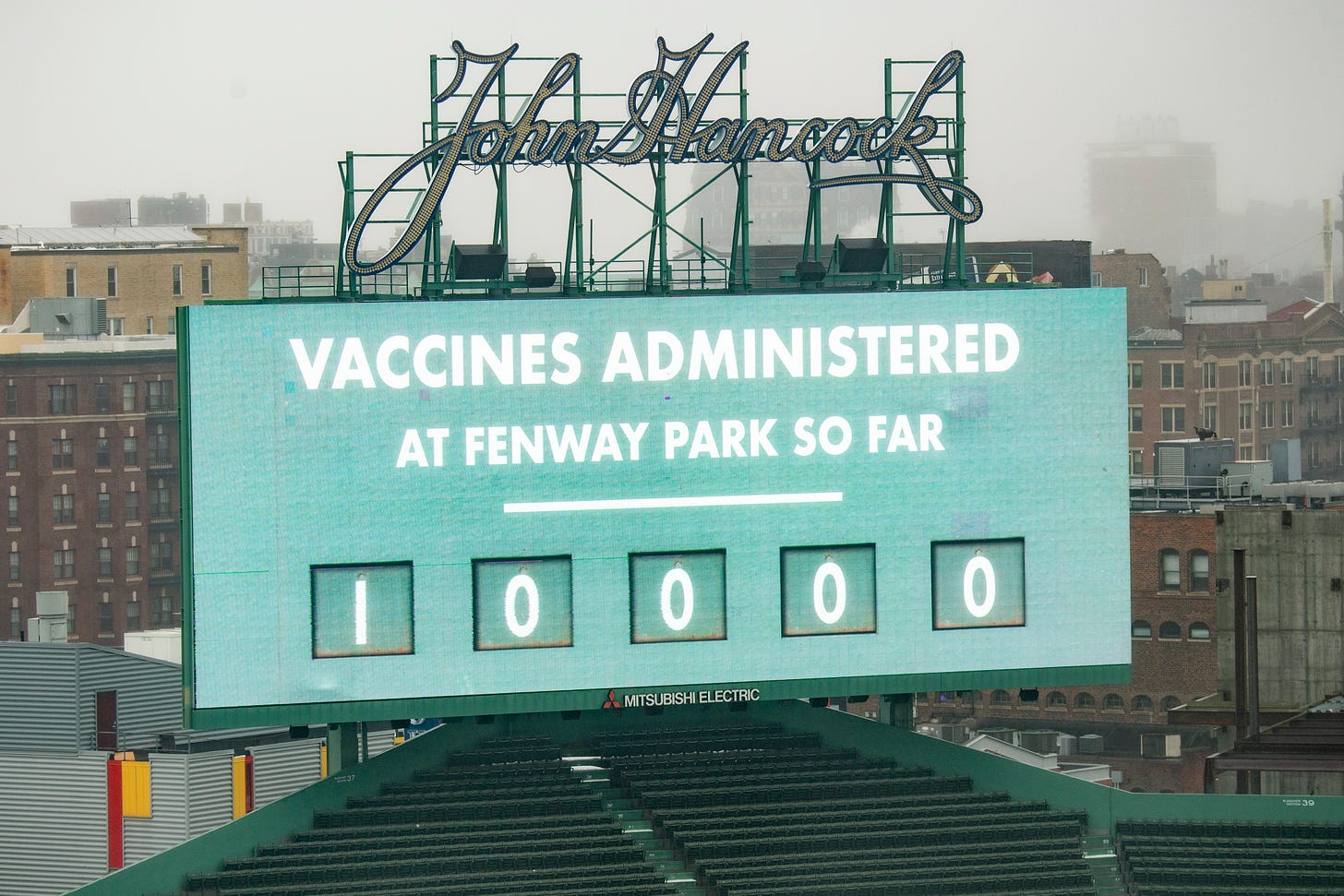
I hope that in a post pandemic world millions will return to the ballpark, to smile, laugh, and learn how to keep score. I hope that we can hear the roar of the crowds and mingle without fear. We have a ways to go, but this is one effort in which none of us are spectators. We are all called to suit up in the service of public health.
I hope these musings were of interest even to those who are not fans of the game. No matter your interest, where you live, or who you root for, let’s fire up the organs of hope, say three cheers for science, and play ball.
— Dan
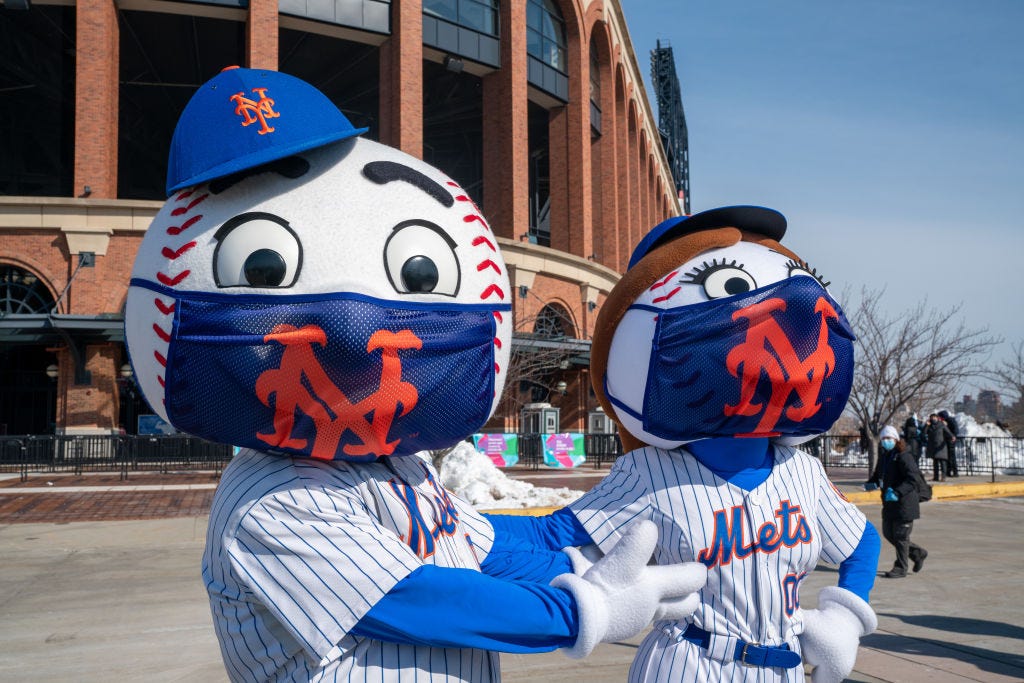
Please consider subscribing to STEADY, if you have not already. Our goal is to build a vibrant digital community —the more voices, perspectives, and viewpoints that can add to the conversation, the merrier.



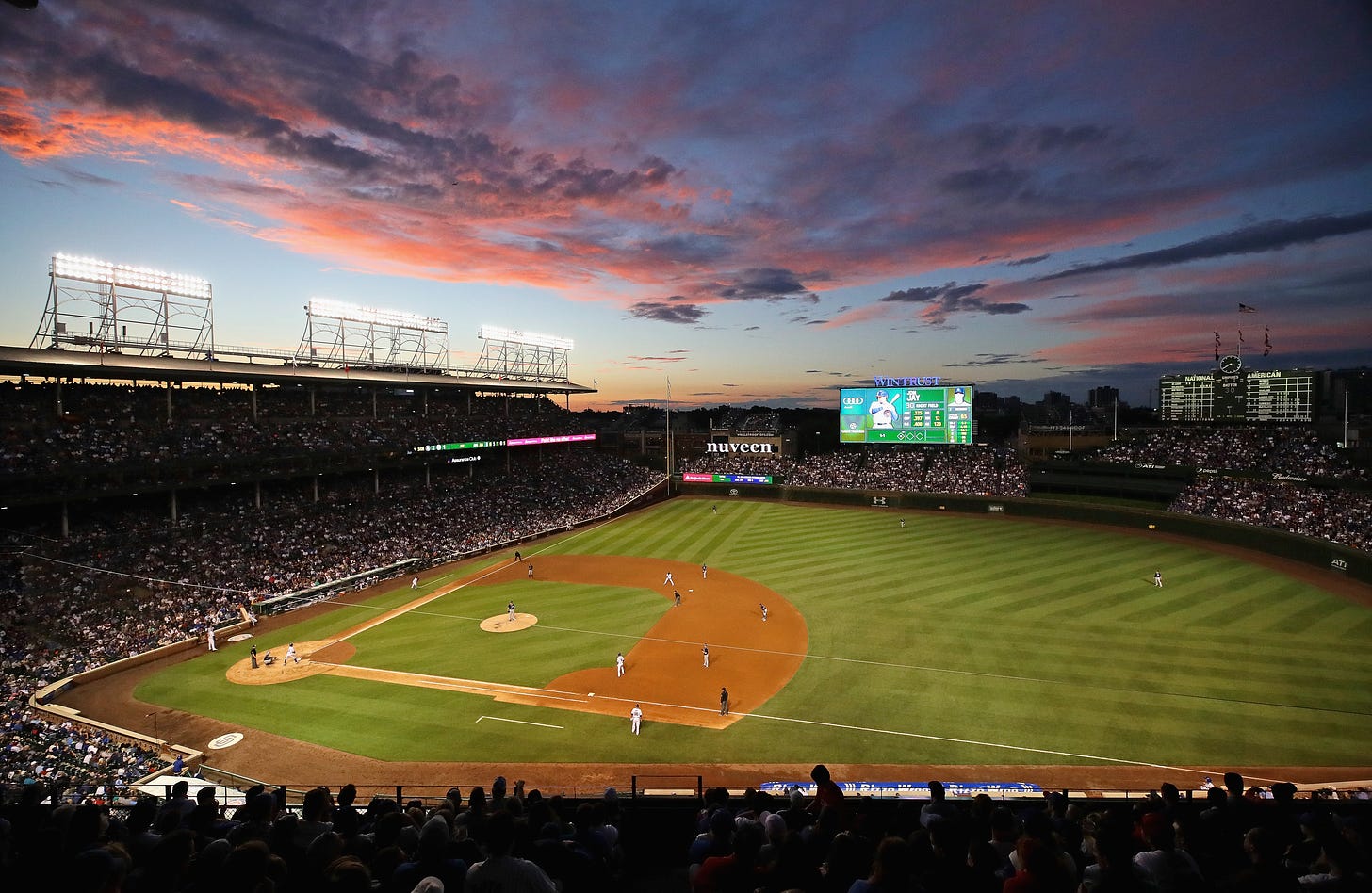
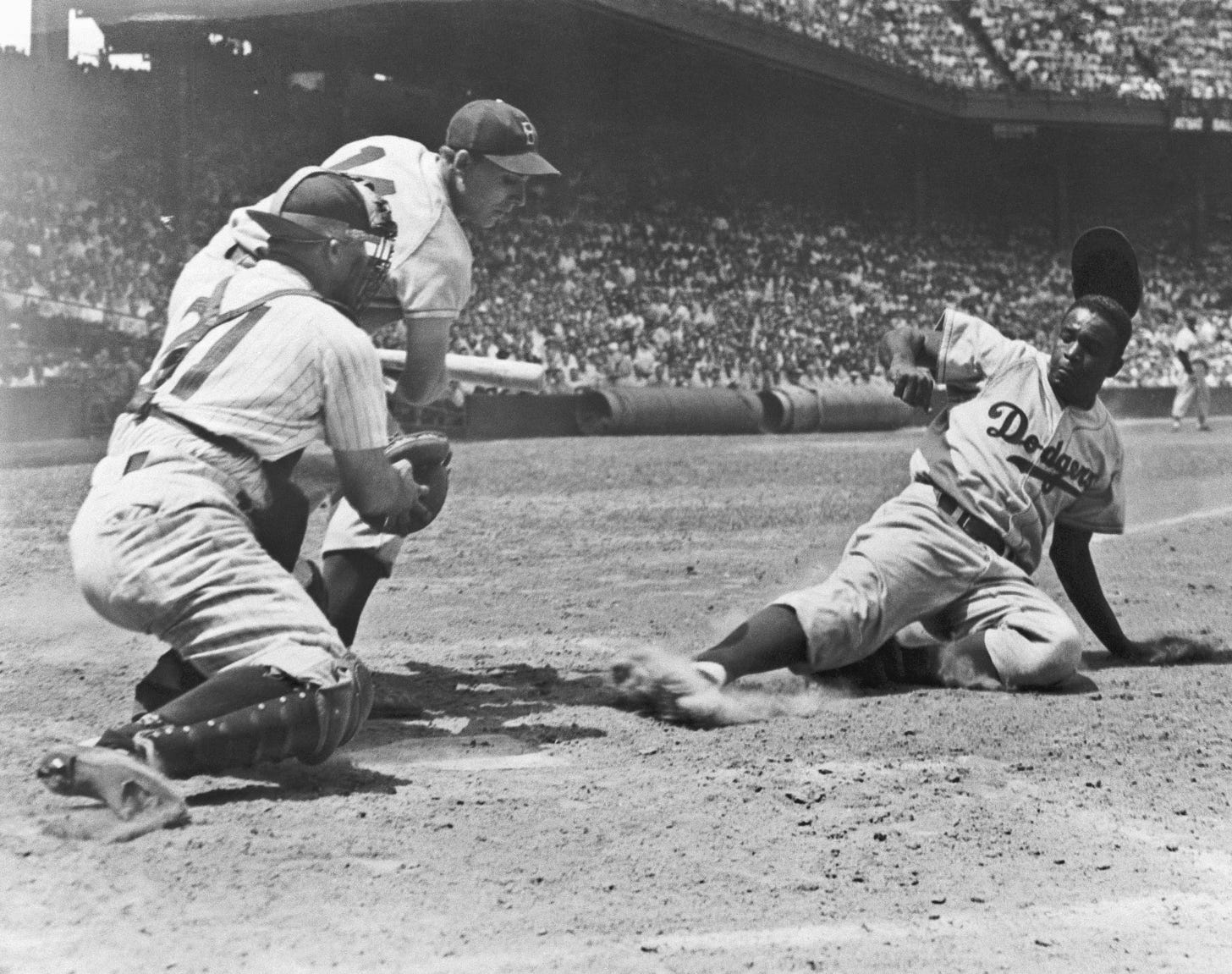
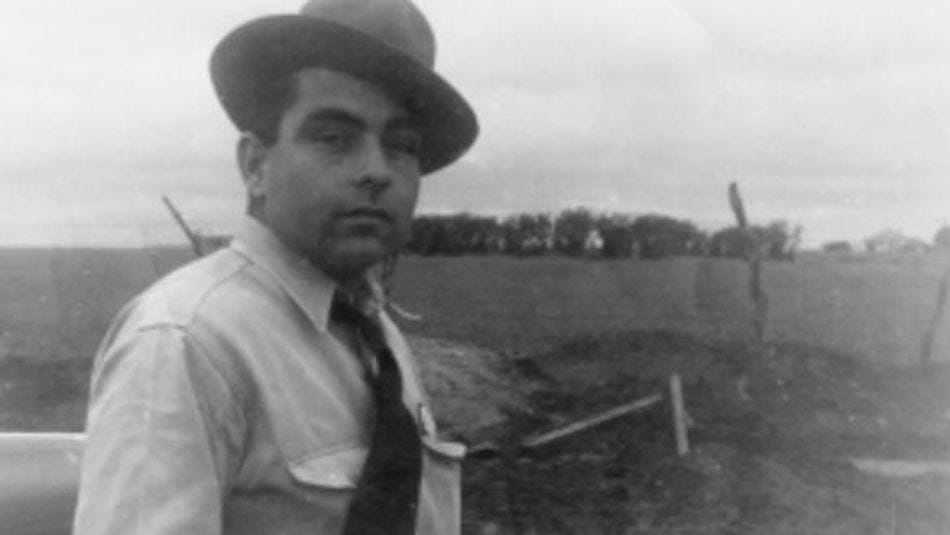
As a lifelong baseball fan who’s passed love for the game on to her daughter, thank you for this. And to quote one of my favorite films of all time, which in turn paraphrases one of our most-lauded American writers: “I see great things in baseball. It’s our game, the American game. It will repair our losses and be a blessing to us.”
Dan--As cheesy as it may be to say, you hit a grand slam with me this AM. My grandfather gave me the game at age 4, teaching me how to throw and swing the bat. A Pittsburgh Pirates prospect before WWI broke out, he lost hearing in one ear, directing artillery fire during the Meuse-Argonne offensive. The hearing loss, and resulting loss of balance knocked him out a professional gig in ball--but from age 7 on, I went with him to rickety old Burnett Field in Oak Cliff, home to Dallas' teams in the Texas League from 1910 to 1959, and then the Dallas-Ft.Worth Rangers in the old AAA American Association. He took me out there probably 50 times through the years, and every single night I went, it became more evident I was hooked. The game became for me, as riveting as it was for him, God rest his soul. Reading about your trips with your dad to old Buff Stadium reignited Burnett Field memories for me. I went on to play in college, but then entered the news game. You, Dan were always one of my top heroes--still are--but the game never left me. Leaving CNN in '95, I wrote a baseball book with Red Murff the scout who discovered Nolan Ryan, and that led me to the broadcast booth for the last 26 seasons, and I'm blessed at age 70 to still be in love with it and hard at it. Every single point you made about the game echoes so very true in so many ways, and it's absolutely correct because I see it every single night; political, social and economic differences find themselves shelved at a ballpark. The entire experience lends itself to community more so than any other sport. And, sir, the invitation remains open. I would love to have you broadcast a game with me. Thanks for a great Sunday morning read!
Blessings from Austin. Mike Capps